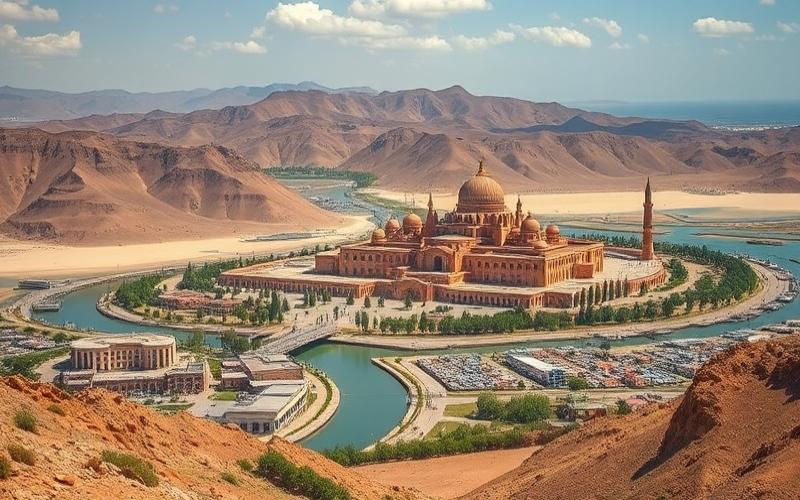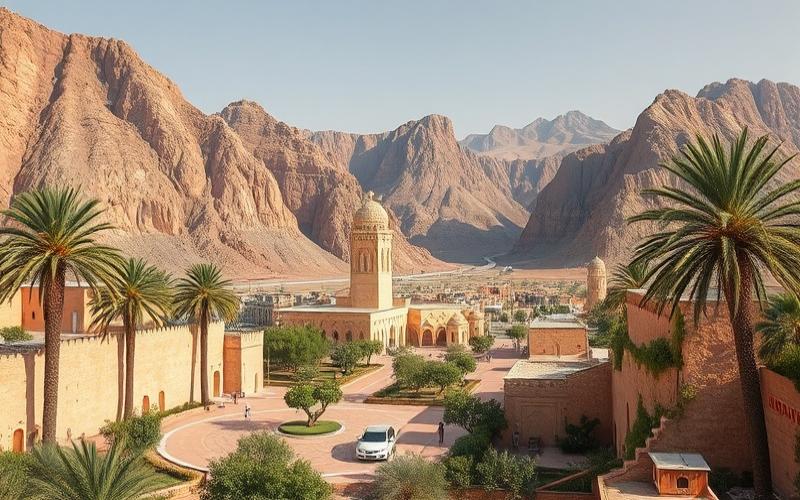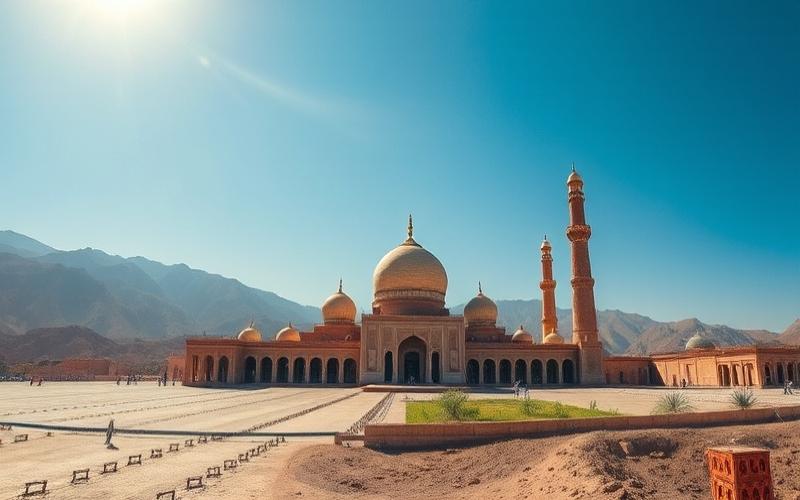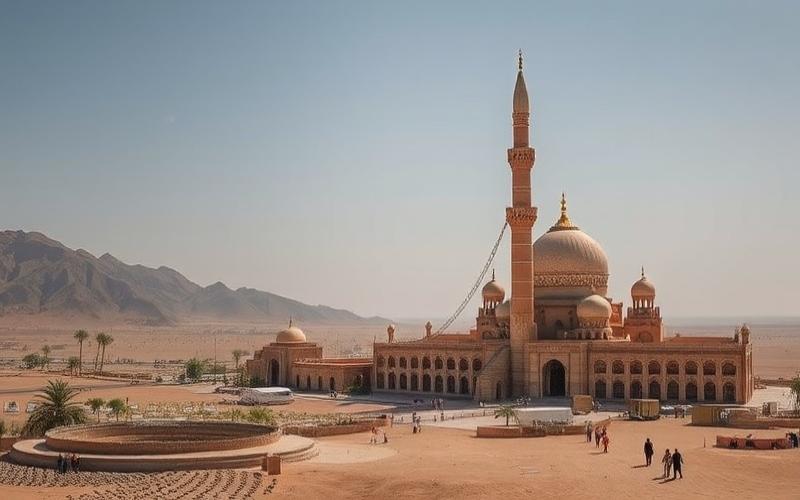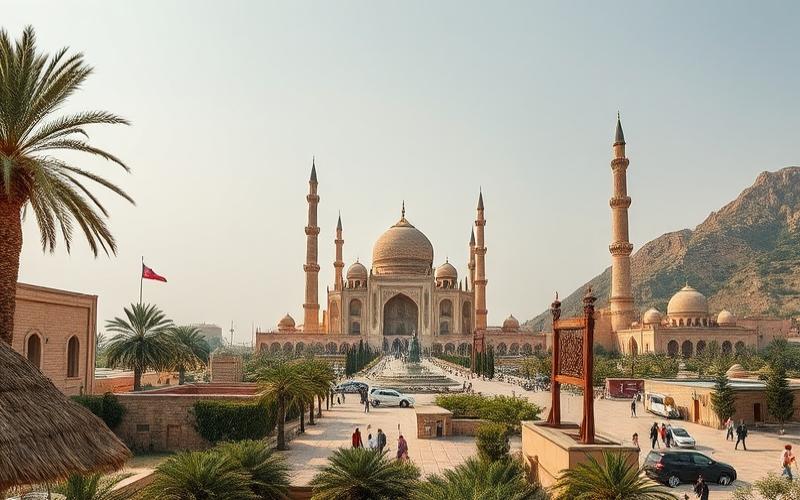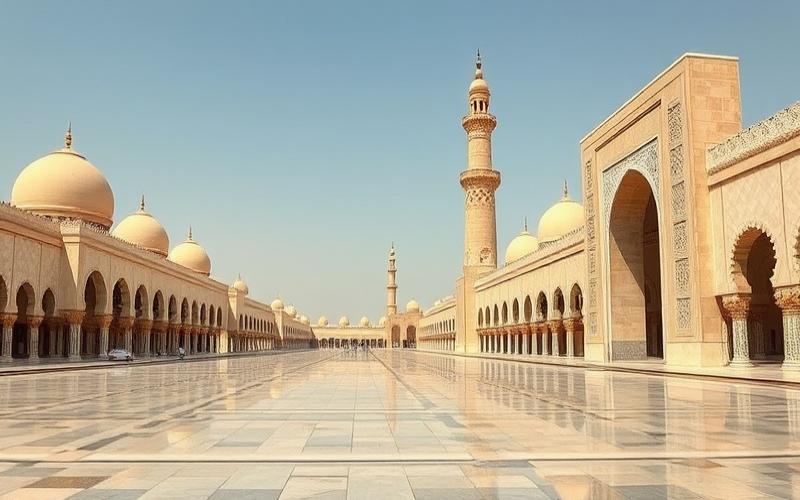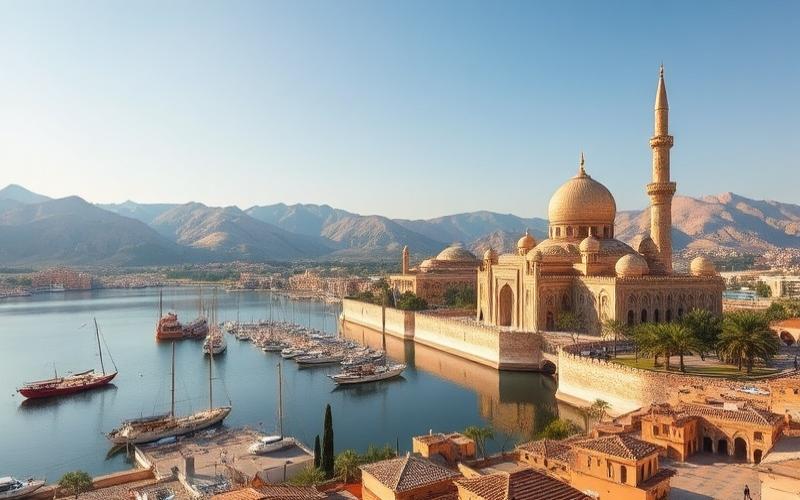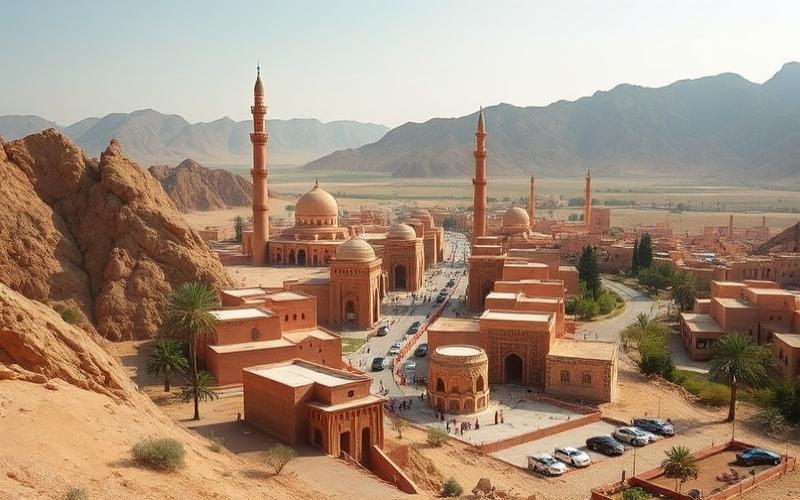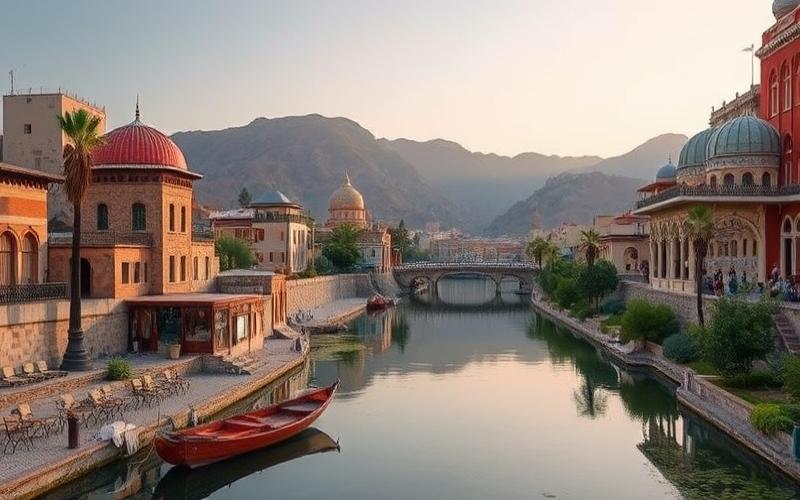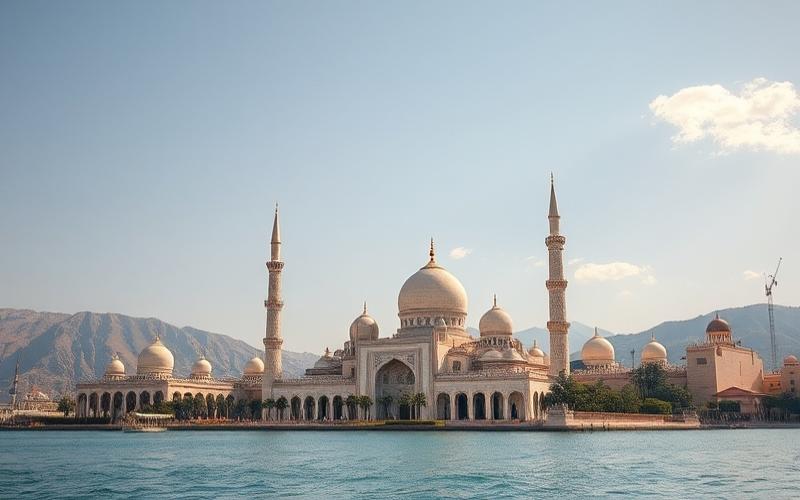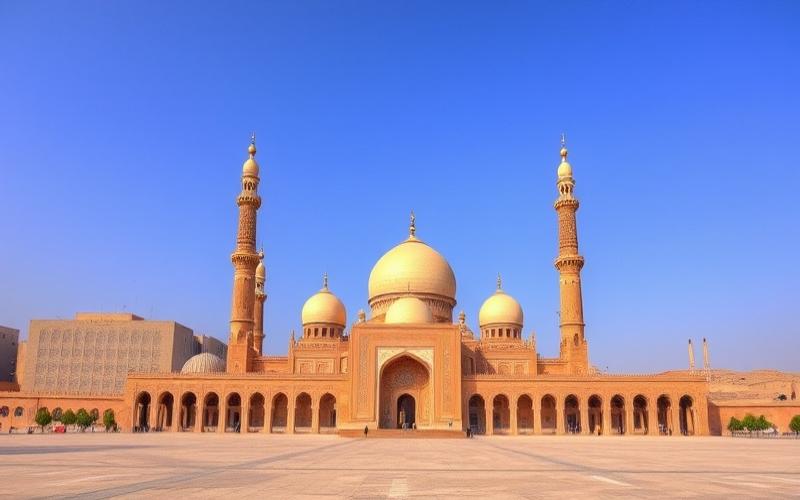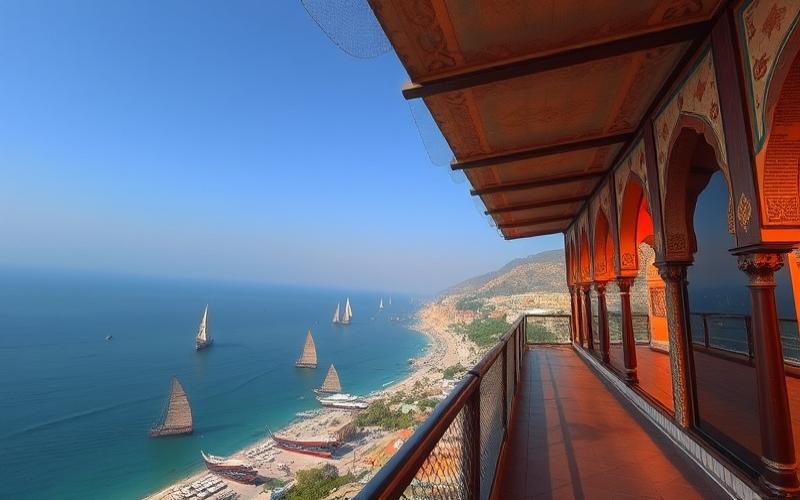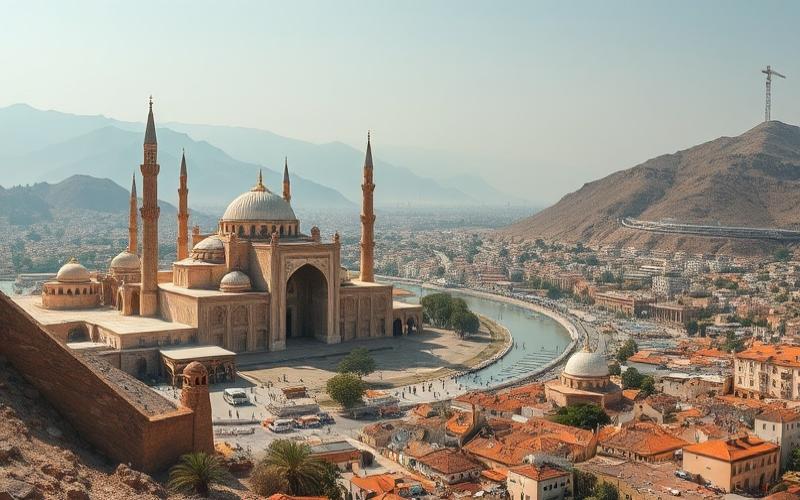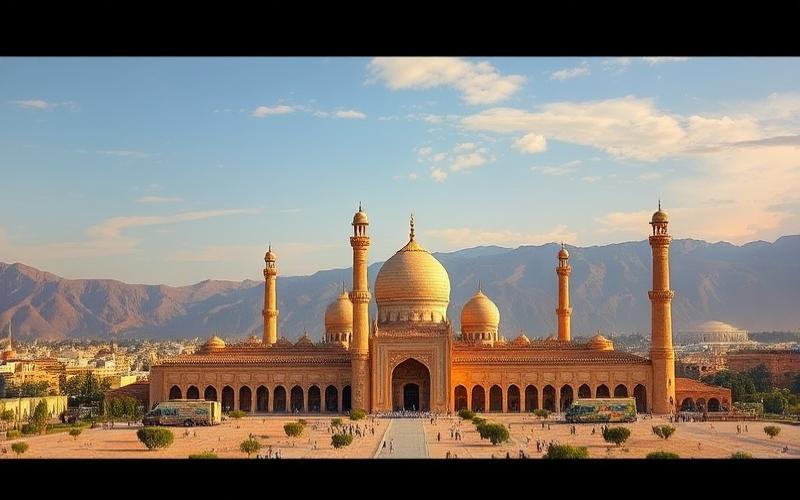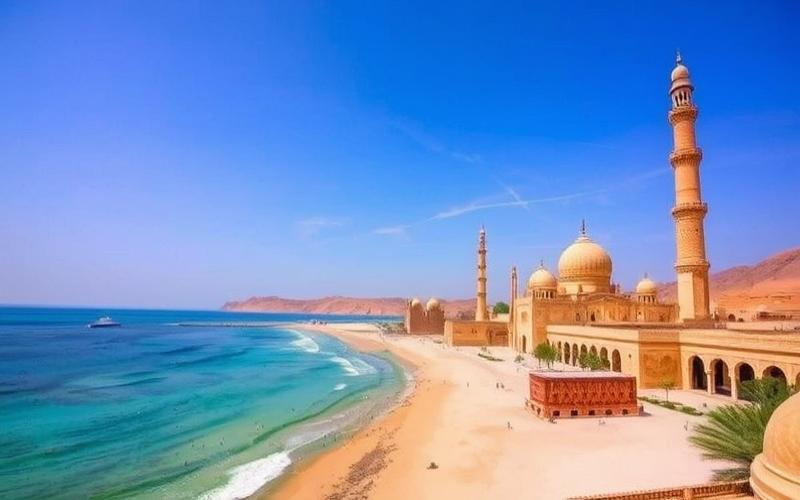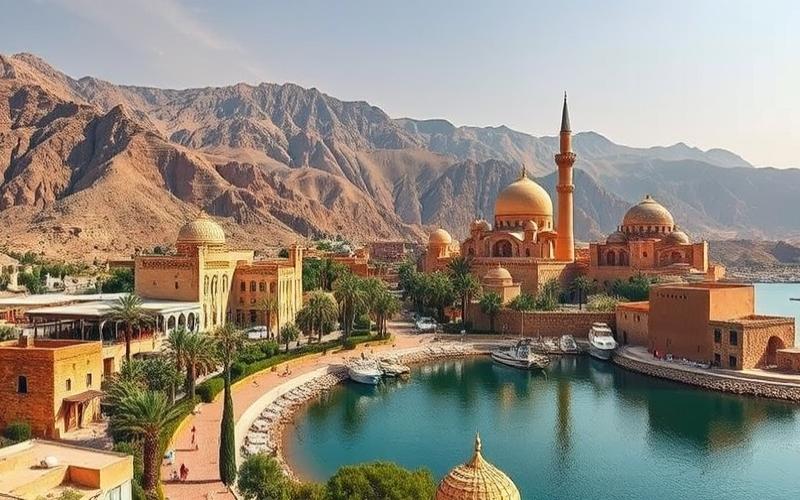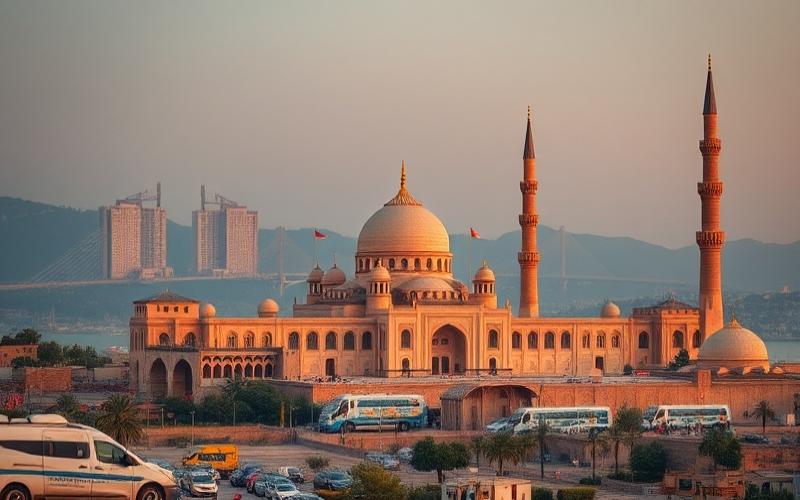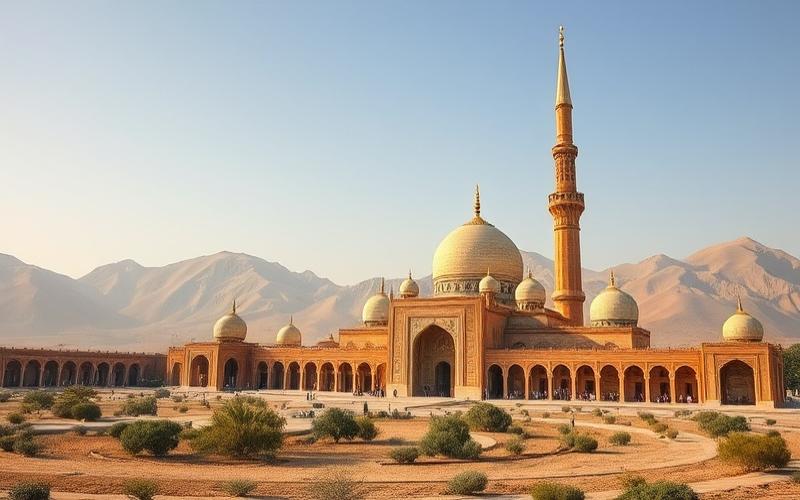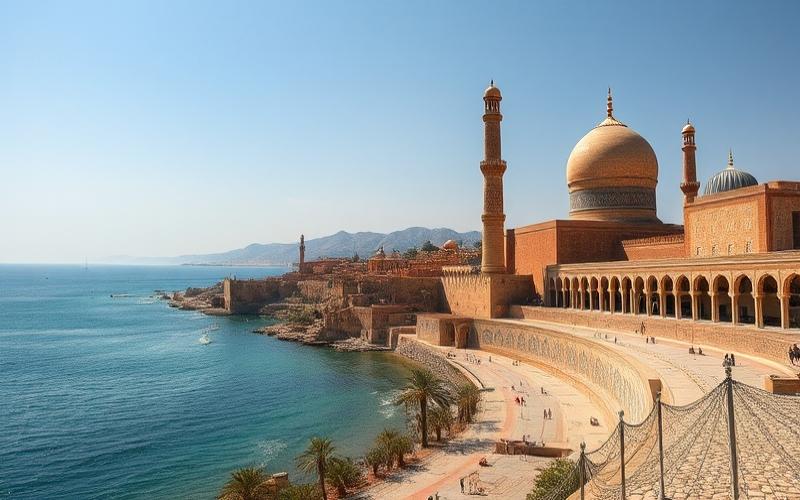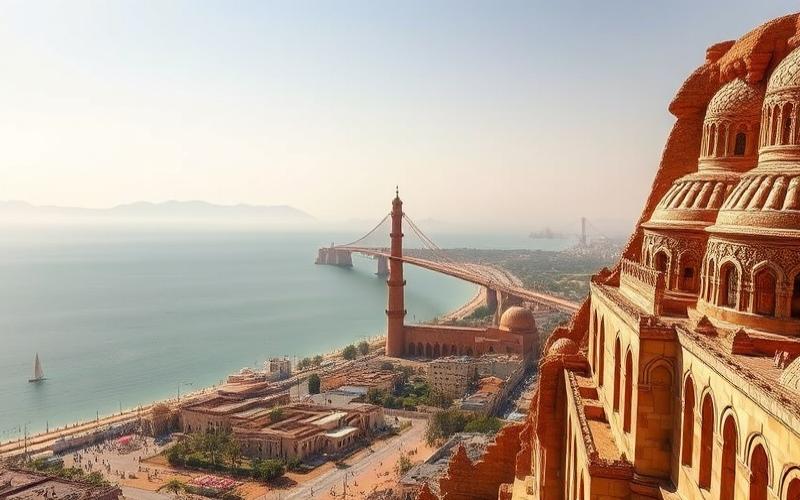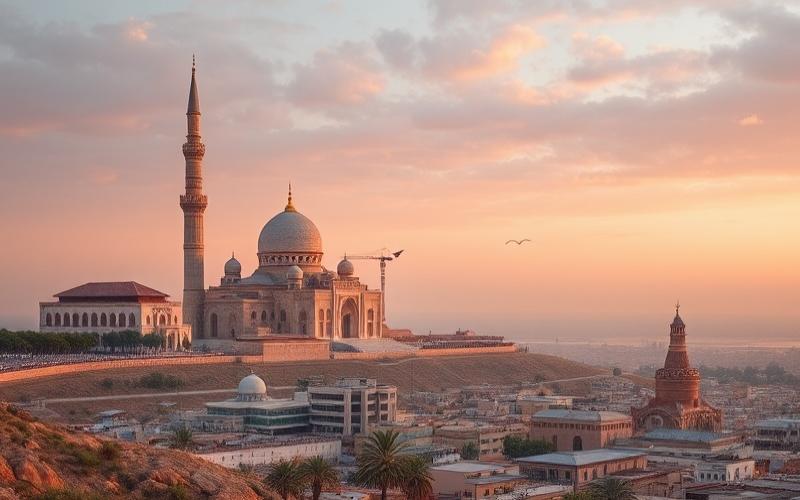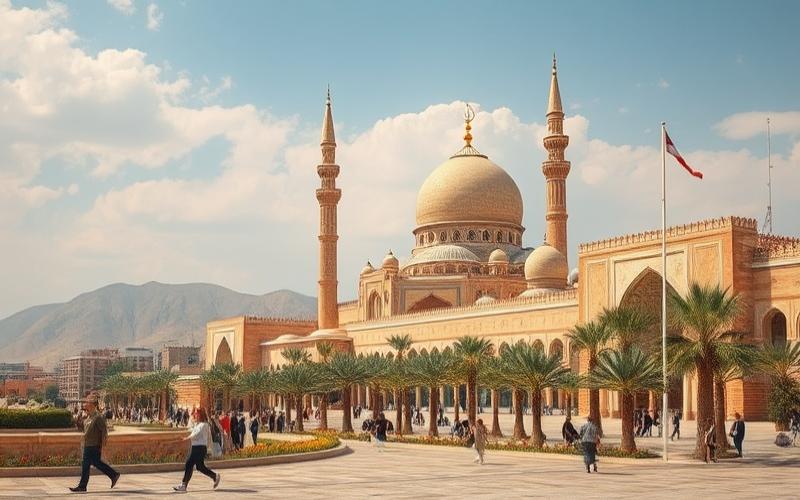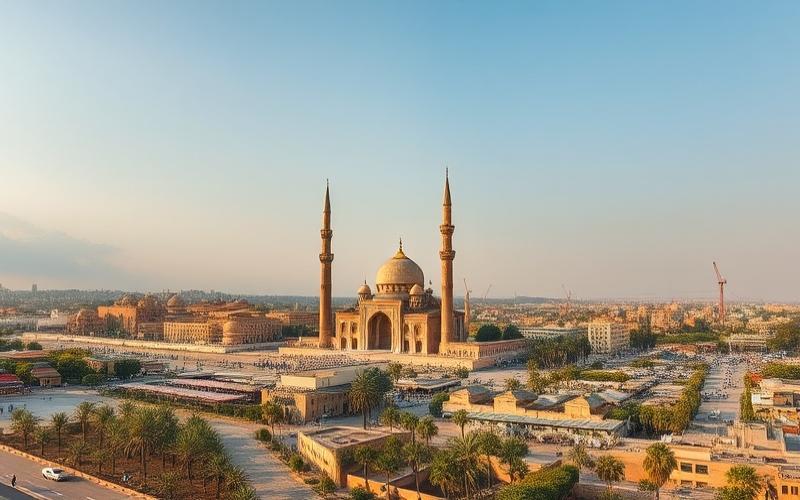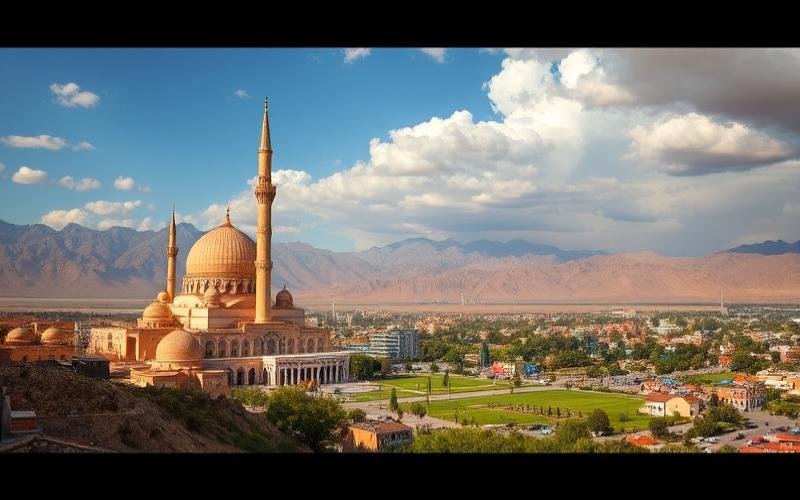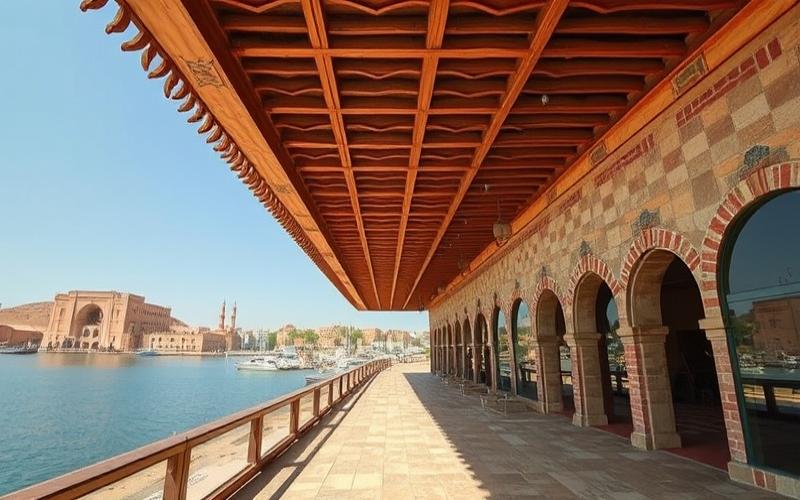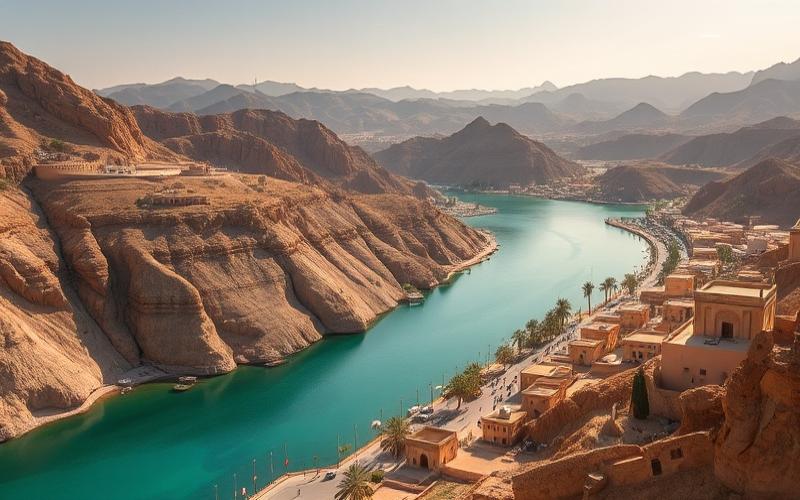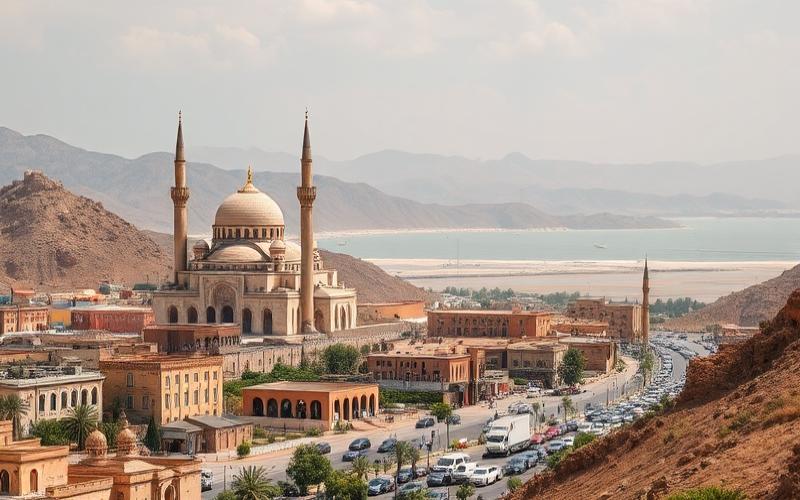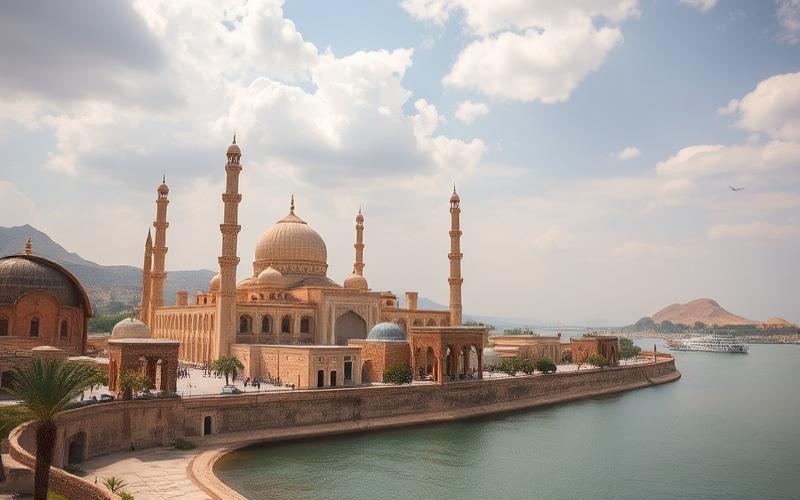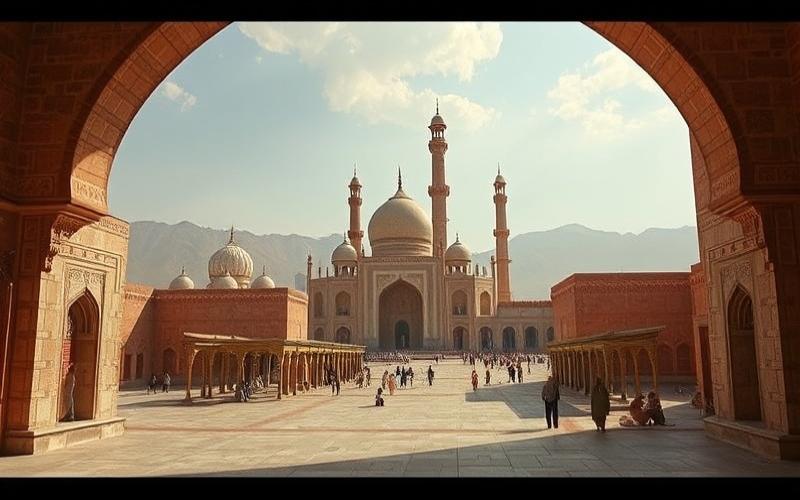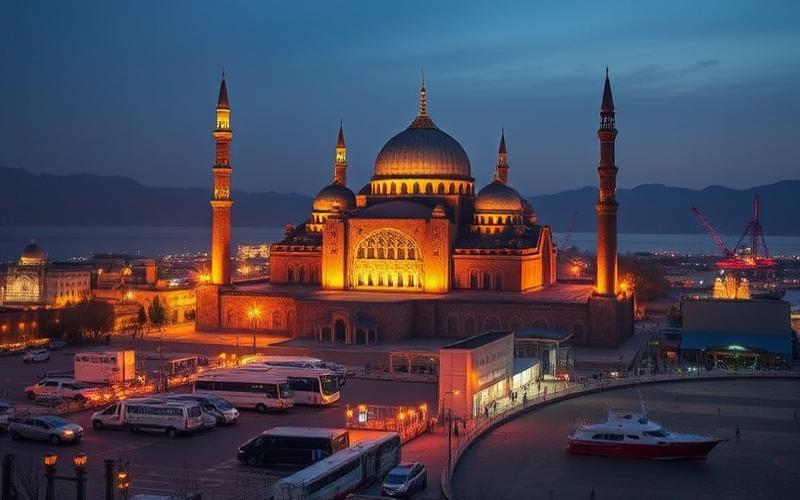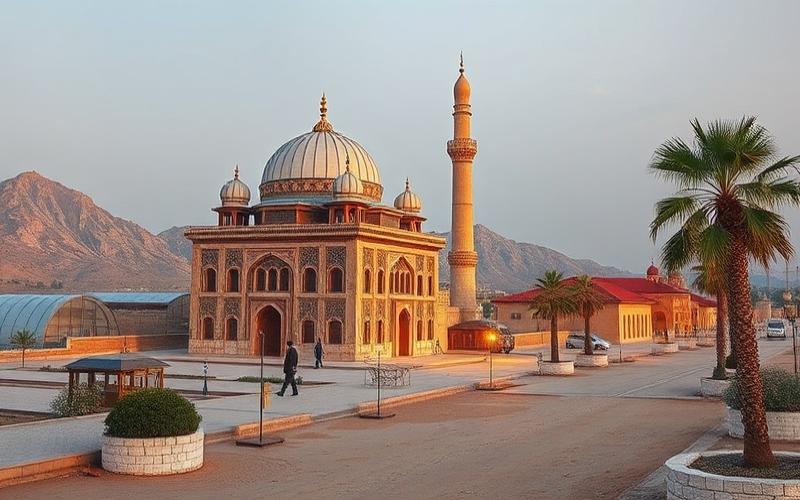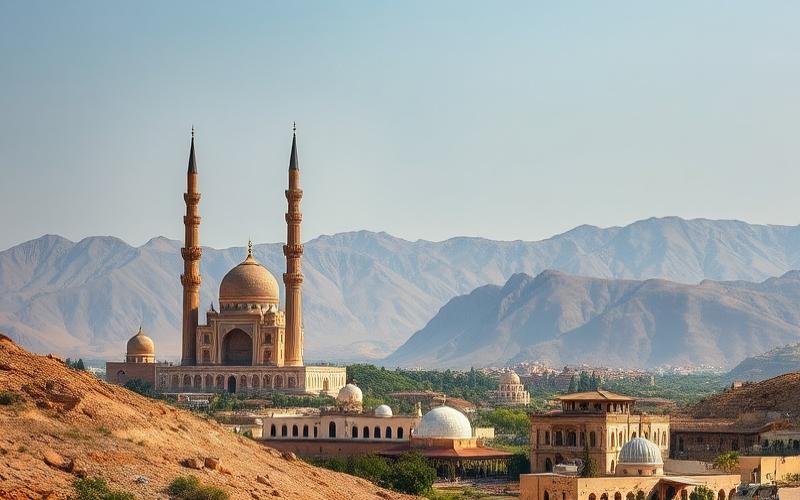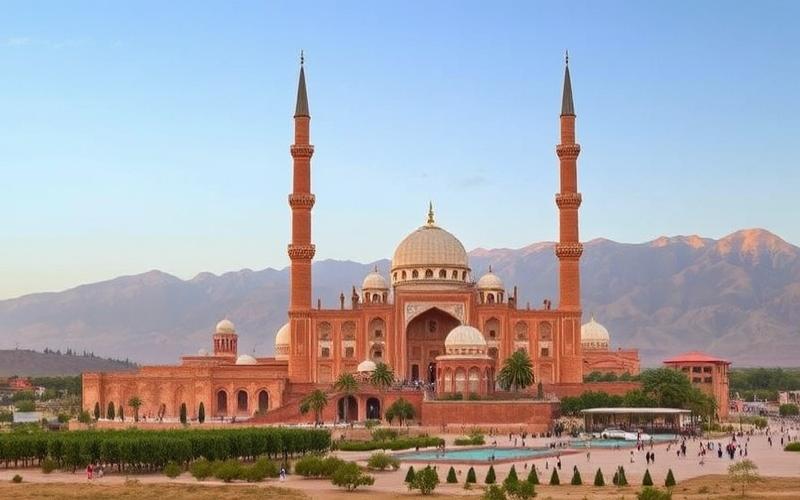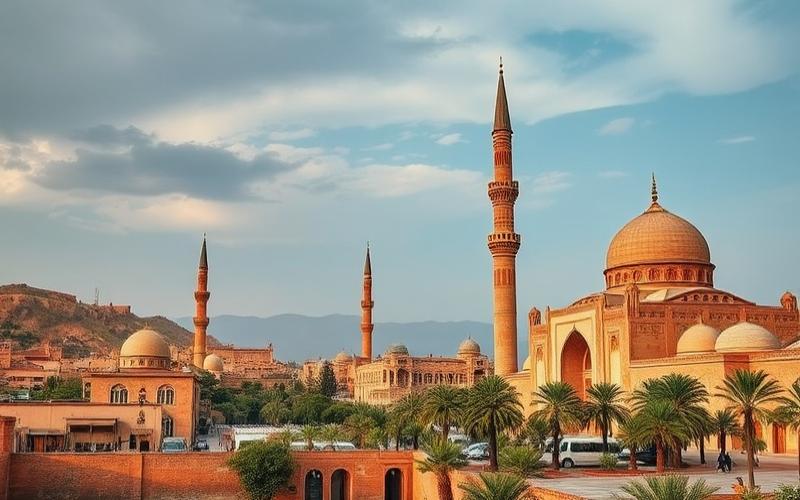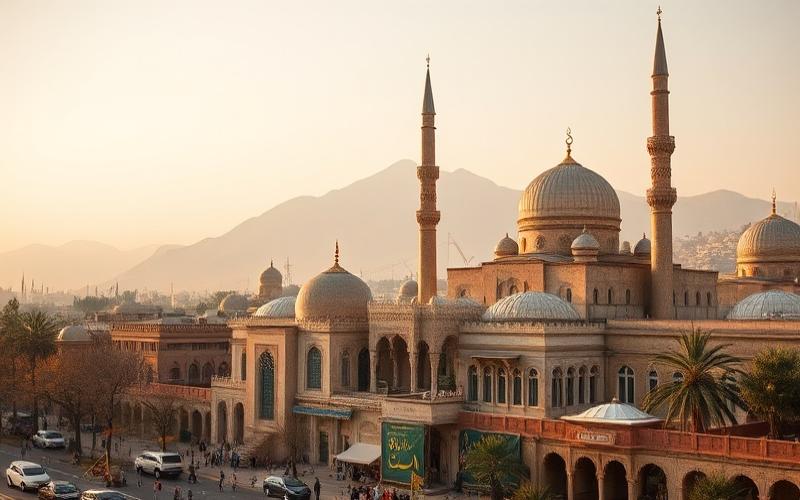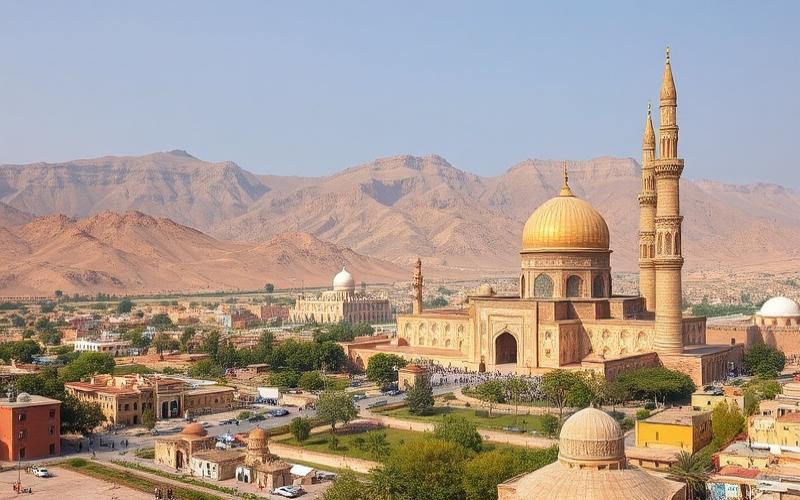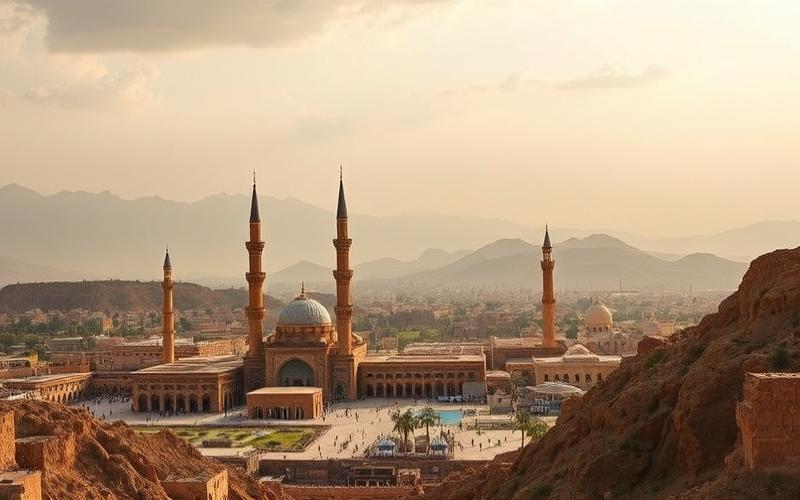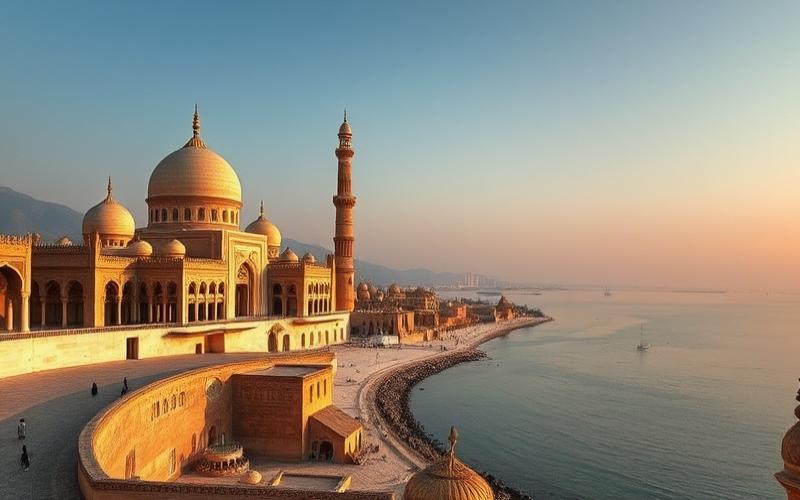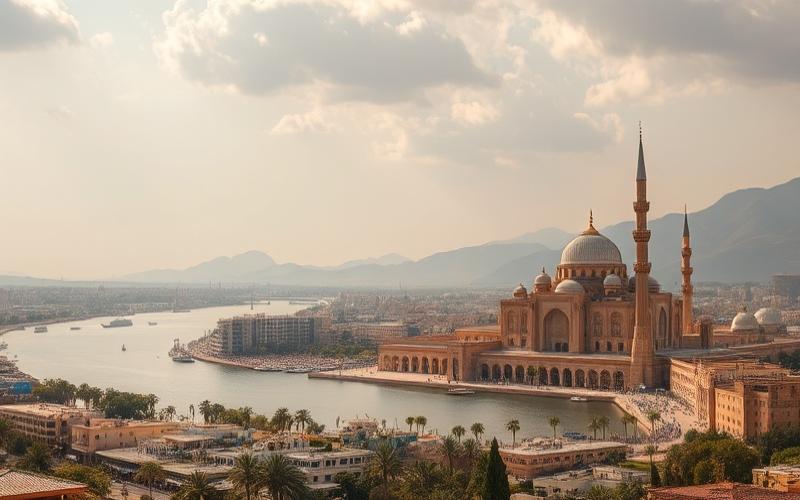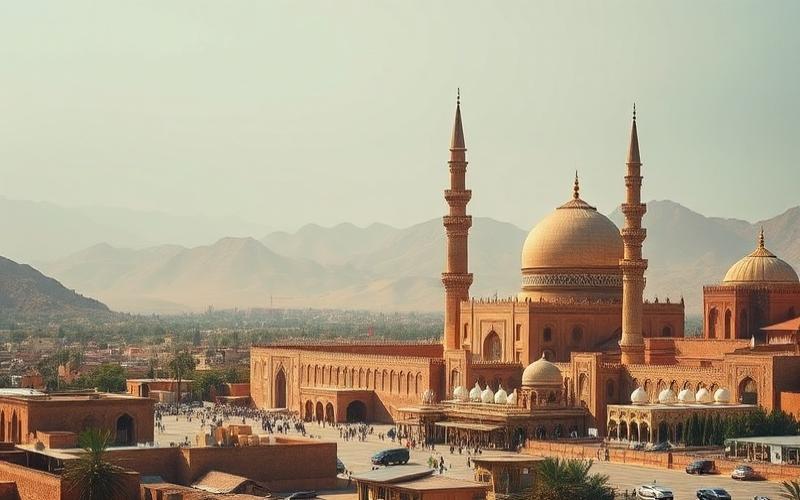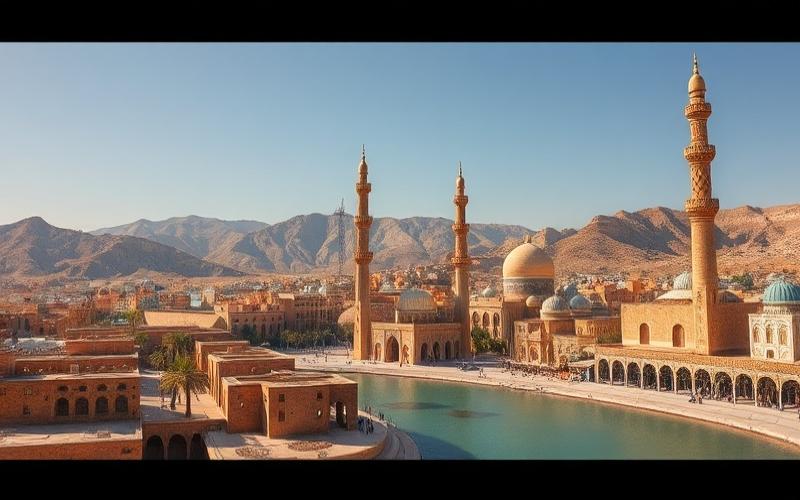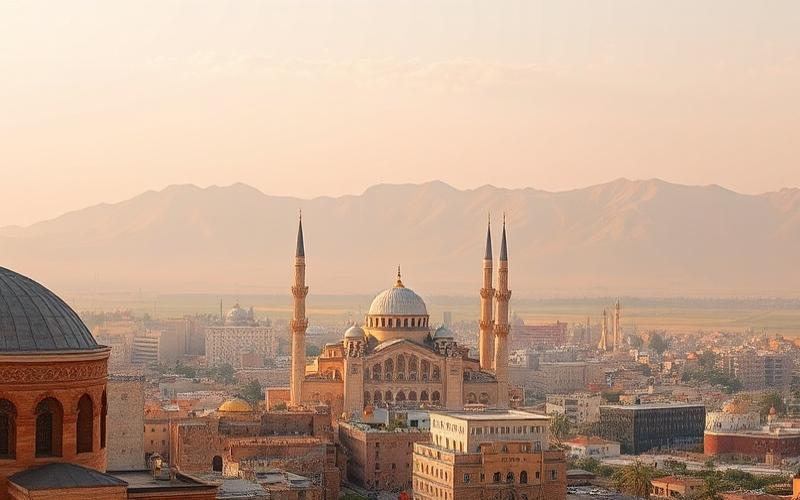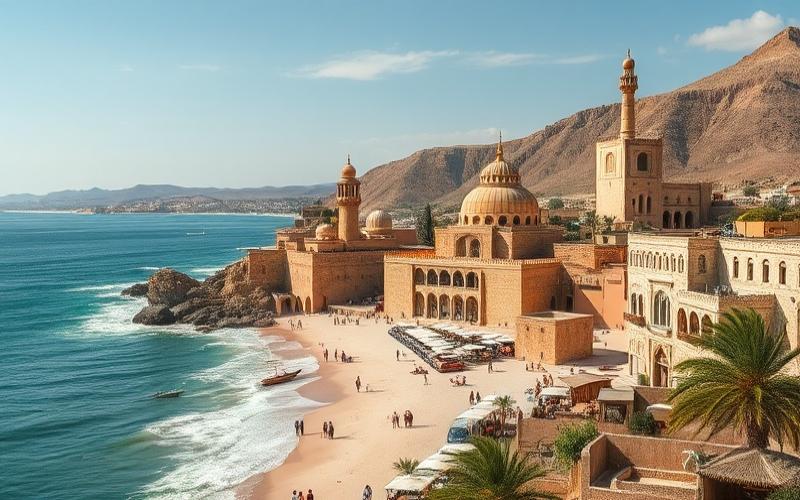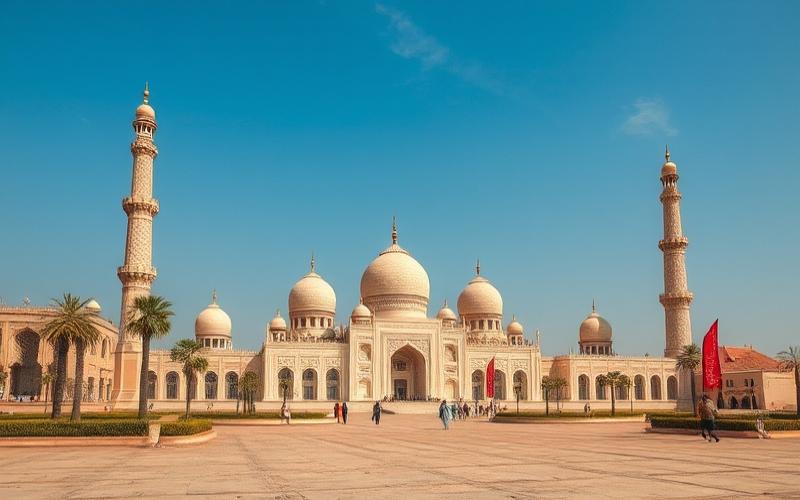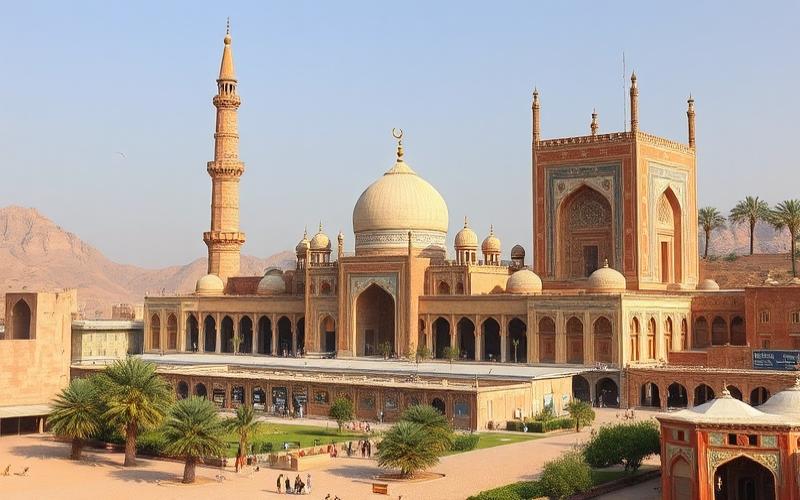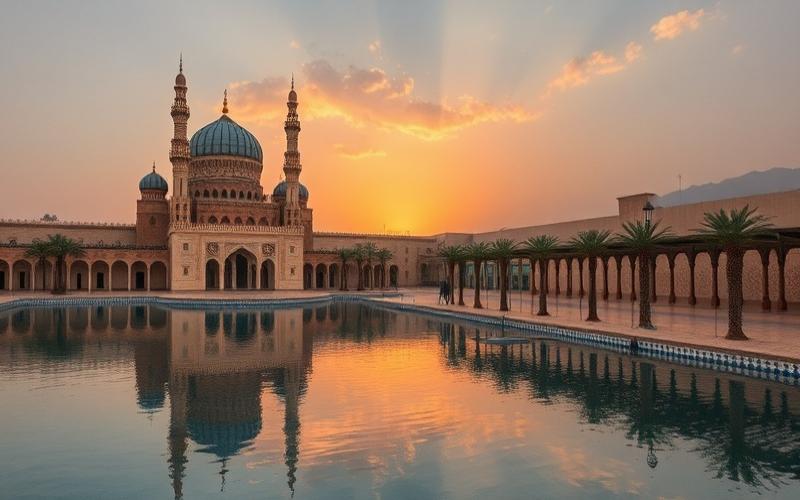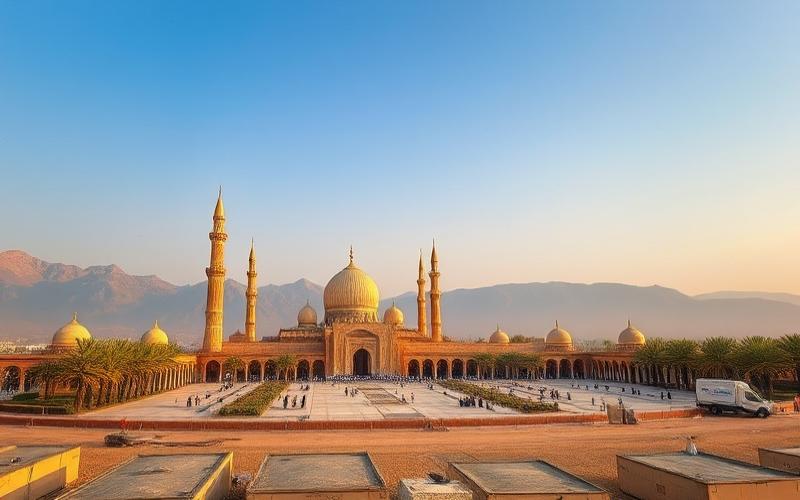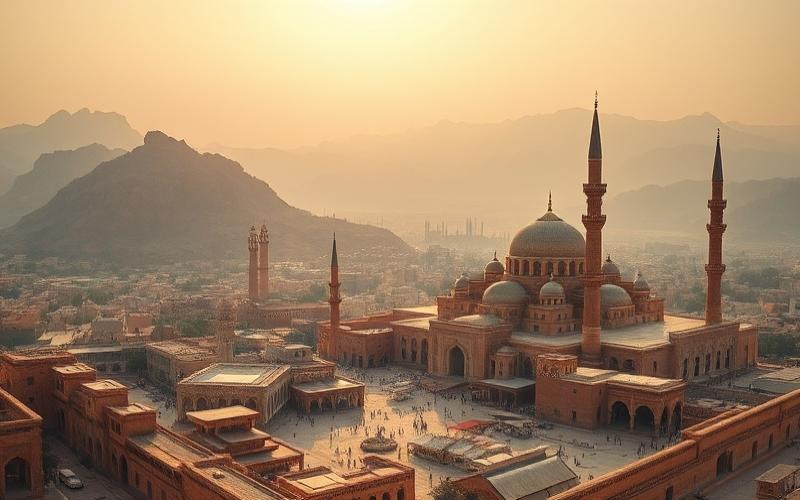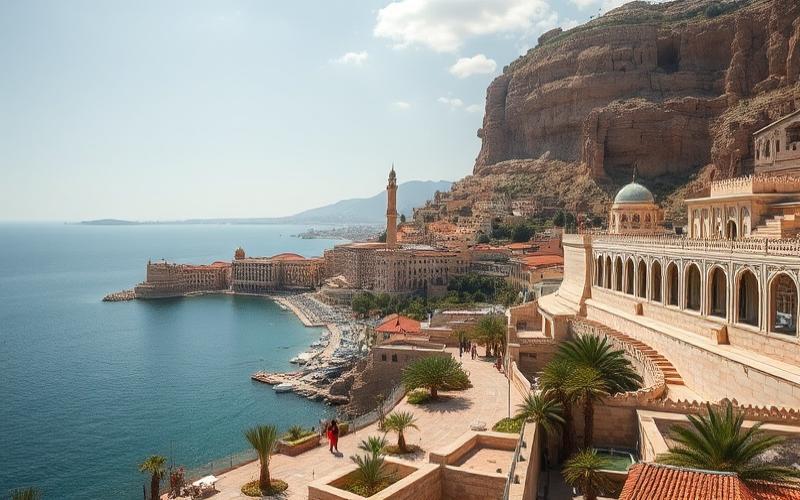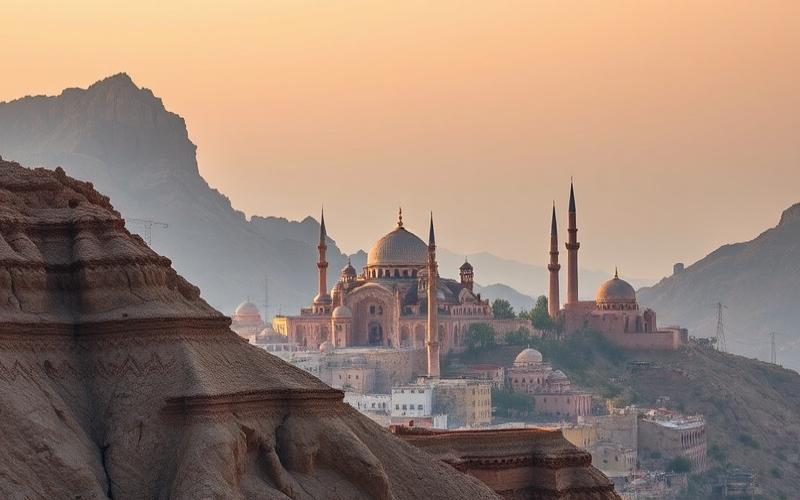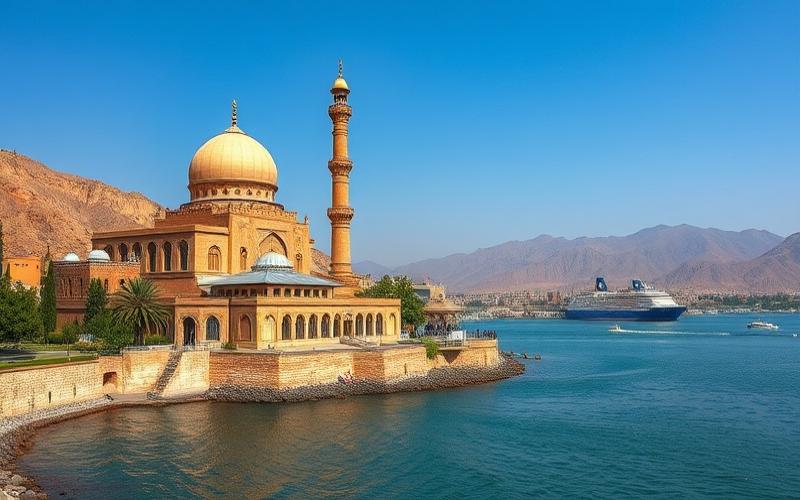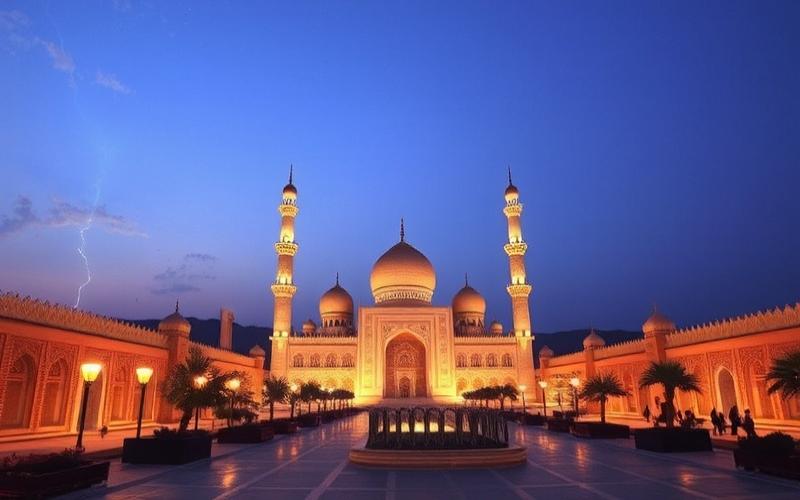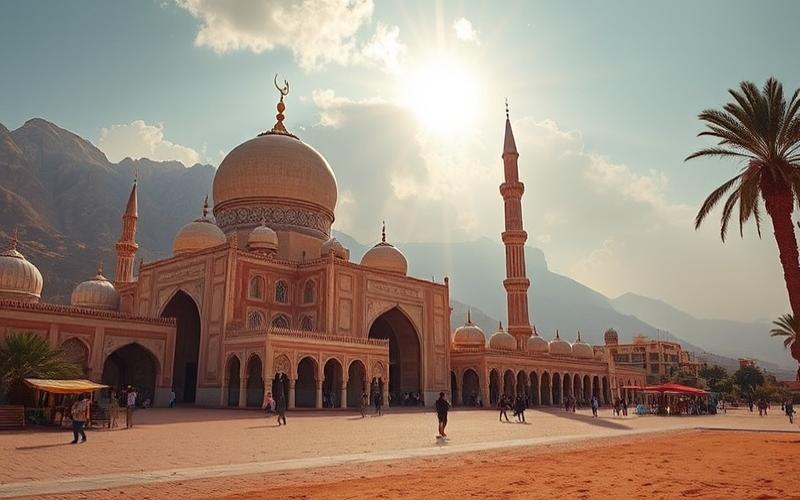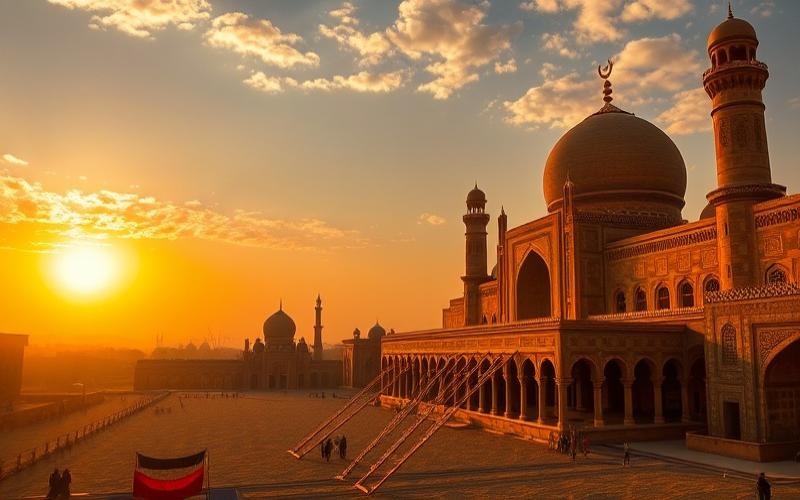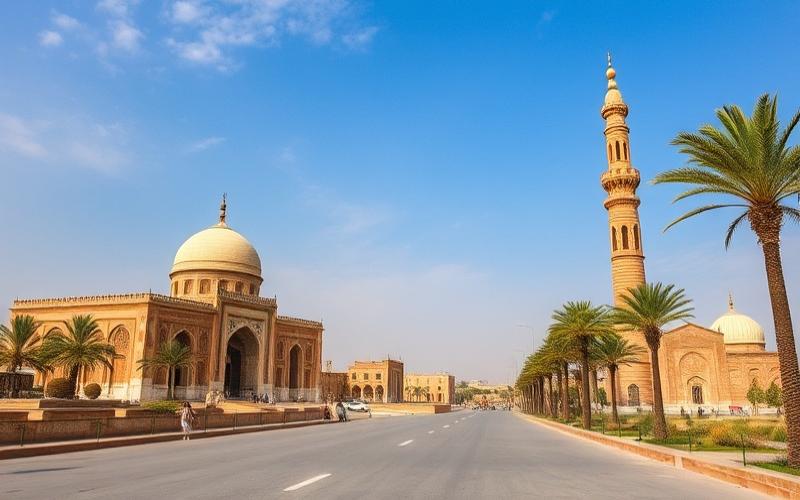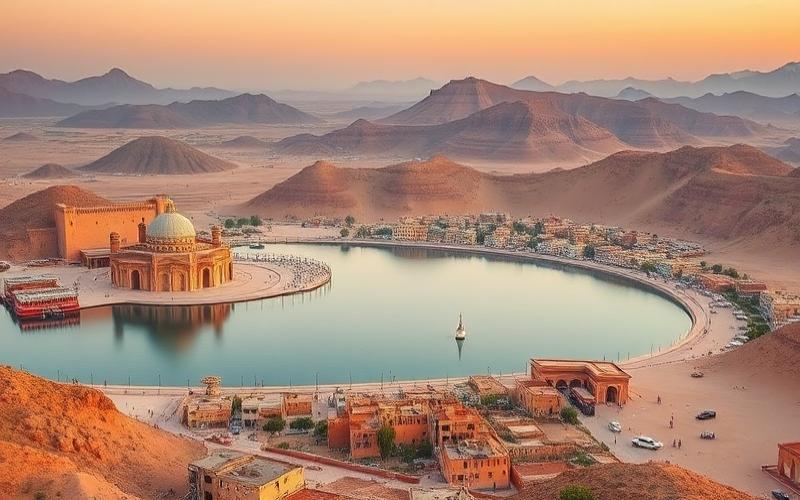
 Published on and written by Cyril Jarnias
Published on and written by Cyril Jarnias
Relocating to Bahrain, with its modern skyscrapers and rich heritage, can seem like an exciting adventure. However, to ensure smooth integration, it’s crucial to consider the cultural differences that shape this island kingdom.
From respecting local traditions to understanding implicit social norms, every aspect of daily life offers a unique glimpse into a culture where hospitality and modernity coexist.
This article aims to explore these nuances to help future expatriates successfully navigate this unique environment, thereby enriching their experience while respecting local customs.
Understanding Social Norms in Bahrain
Bahrain presents a unique social landscape within the Persian Gulf, characterized by a moderate and cosmopolitan approach while maintaining its deep Arab and Islamic roots. This duality shapes all social interactions and behavioral norms in the kingdom.
Bahraini hospitality constitutes one of the fundamental pillars of society. Bahrainis place particular importance on warm welcomes, elaborate gift exchanges, and generosity, especially during meals. This hospitality tradition manifests concretely through frequent invitations of friends and family to one’s home, where punctuality is valued and guests are encouraged to reciprocate this generosity.
The family and community structure holds a central position in Bahraini society. Family meals represent essential gathering moments, particularly lunch which serves as the main meal around 2 or 3 PM. These moments prioritize intergenerational interactions, where respect for elders remains a fundamental value – it’s customary to greet the oldest person first during social encounters.
| Social Aspect | Traditional Practice | Modern Adaptation |
|---|---|---|
| Entertainment | Preference for gender-segregated gatherings | Growing acceptance of mixed-gender events |
| Meals | Eating on floor with specific etiquette | Western tables also accepted |
| Clothing | Traditional attire mandatory | Western clothing widely adopted |
Islamic influence deeply permeates daily behaviors, though more flexibly than elsewhere in the region. Islamic dietary rules are respected, with exclusive use of the right hand for eating, as the left hand is considered impure according to Islamic teachings. Religious celebrations mark the social calendar with Eid al-Fitr, Eid al-Adha, the Prophet Mohammed’s birthday, and more recently Ashura commemorations for the Shia community.
Dress codes reflect this synthesis between tradition and modernity. For men, the white cotton thobe in summer or wool in winter, accompanied by the keffiyeh and agal, remains common, particularly during formal occasions where the bisht may be added. Women traditionally wear the black abaya with hijab, although dress codes are considerably relaxed compared to conservative regional standards.
Greeting etiquette follows precise protocols according to gender and social status. “As-salamu alaykum” and its response “Wa alaykum as-salam” constitute standard polite phrases. Men typically shake hands among themselves, while women may exchange cheek kisses with their friends. It’s appropriate to wait for a woman to extend her hand first during mixed-gender meetings.
The perception of time in social interactions prioritizes relationship quality over strict timing, although punctuality is appreciated during formal invitations. This flexible approach to time often contrasts with stricter Western habits.
The tipping system perfectly illustrates the importance placed on service recognition. A 10% tip is customary in taxis and hotels, and it remains common practice to tip service staff even when a service charge is already included.
For Western expatriates, several adjustments prove necessary. Clothing should respect modesty, particularly in rural areas and religious sites – women should cover shoulders and knees, men should avoid shorts in public. Accepting Bahraini hospitality, even if it may seem excessive by Western standards, constitutes a fundamental sign of cultural respect.
Bahraini society stands out for its relative tolerance and openness to external influences, resulting from its island geographic position and commercial history. This characteristic facilitates expatriate integration while maintaining the requirement to respect fundamental traditional values such as hospitality, respect for elders, and courtesy in social interactions.
Good to know:
In Bahrain, greetings often include a light handshake and men traditionally wear thobes, while hospitality toward foreigners is warm but may differ from Western interactions through a more flexible perception of time.
Discovering Local Traditions and Customs
Main Holidays and Festivals in Bahrain
- Eid al-Fitr: celebrates the end of Ramadan with prayers, feasts, gift exchanges and charitable acts. It’s a key moment for family and community reunions.
- Eid al-Adha: Feast of Sacrifice, commemorates Ibrahim’s faith. Marked by sharing meat with relatives and those in need.
- Ashura (primarily among Shia Muslims): commemoration of Hussein’s martyrdom, the Prophet Muhammad’s grandson, with public processions and collective rituals filled with contemplation.
- Gergaoon: popular celebration at Ramadan’s midpoint where children sing in streets receiving sweets and nuts; symbol of intergenerational community unity.
- National Day (December 16): celebrated with parades, fireworks and cultural events expressing national pride.
- Other events include the Marassi Diving Festival dedicated to scuba diving.
Main Local Customs
List of common social practices:
- Greetings are typically done with a soft handshake or hug between men; between unrelated men and women, it’s customary to avoid direct physical contact. The word “Salam Alaikum” is frequently used.
- Traditional clothing for men includes the thobe (long white tunic) sometimes accompanied by the keffiyeh (ghutra) on the head. Women often wear the abaya, a long black dress worn over regular clothes; some also cover their hair with a veil (hijab).
- Public displays of affection are limited; both expatriates and locals should show restraint in public.
| Element | Local Custom | Expected Expatriate Attitude |
|---|---|---|
| Greetings | Soft handshake/no cross-gender contact | Respect cultural distance |
| Clothing | Modest/covered attire | Avoid short/tight clothing |
| Social Behavior | Respect hierarchy/elders | Politeness/discretion |
Religious Importance & Islamic Influence
Islam deeply structures daily life:
- Schedules are adapted to the five daily prayers; some establishments temporarily close during these times or during the Muslim holy Friday (Jumu’a).
- The holy month of Ramadan imposes daytime fasting for all practicing adult Muslims – everyone is expected to show respect by avoiding eating/drinking/smoking in public during this period.
National laws are largely inspired by Islamic principles concerning social, family, or dietary order (prohibited consumption of alcohol/pork for Muslims).
Traditional Cuisine & Community Sharing
Typical culinary specialties:
- Machbous (national dish): spiced rice served with fish or lamb
- Ghoozi: stuffed lamb with fragrant rice
- Balaleet: sweet noodles served for breakfast
Meals are traditionally shared around a large common platter – a strong symbol of hospitality. It’s common for multiple families to gather during major religious or social occasions to strengthen family/community bonds.
It’s not uncommon to eat sitting on the floor according to ancestral custom; the right hand is then preferred for bringing food to one’s mouth as a culturally correct sign.
Family Ties & Community
The extended family plays a central role in all social aspects – major decisions made collectively; intergenerational solidarity highly valued.
The welcome reserved for foreigners often takes a warm but respectful form: marked hospitality but clear expectations regarding mutual respect for local codes.
Bahrain vs Western Social Interactions Comparison
| Aspect | Bahrain | West |
|---|---|---|
| Greetings | Limited male/female contact | Frequent handshakes/cheek kisses |
| Affection Display | Reserved/in private | More tolerated publicly |
| Social Hierarchy | Marked respect toward elders | Less formalized |
To show respect as a newcomer:
- Adopt clothing discretion
- Use appropriate greetings (“Salam Alaikum”, right hand)
- Observe reserved attitudes in public
- Learn about local religious practices before any social initiative
Good to know:
Attend the Bahrain Grand Prix to experience a festive moment with locals, and remember that shaking hands is the classic way to greet, but some men prefer simply placing their hand over their heart. Respect Islamic traditions regarding modest clothing and know that meals are often shared with family, in a spirit of conviviality.
Practical Tips to Avoid Cultural Faux Pas
Appropriate Dress Standards
- Prioritize modest attire in public: shoulders and knees covered for both men and women, especially in religious or institutional places.
- Local men sometimes wear the thobe (long white robe) and women the abaya (long black dress) or kaftan during festivities.
- Western fashion is accepted, but avoid clothing that’s too short, low-cut, or transparent.
- Example: Wearing shorts in a shopping mall or religious site will be very poorly perceived, even for an expatriate.
| Place/Occasion | Men | Women |
|---|---|---|
| Office/Formal | Pants, shirt | Modest dress, suit |
| Public Places | Long pants, polo | Long skirt, sleeves |
| Mosque/Religious Site | Thobe or equivalent | Abaya, headscarf |
| Traditional Evenings | Thobe, ghutra | Kaftan, jalabiya |
Local Customs and Traditions
- Hospitality is a core value: offering coffee (Gahwa) or dates is a sign of welcome.
- When invited, it’s appreciated to bring a small gift (flowers, pastries).
- Removing shoes when entering a home is often expected; it’s recommended to ask for confirmation.
- During Ramadan, avoid eating, drinking, or smoking in public during daytime.
- Anecdote: During the Gergaoon festival (14th night of Ramadan), children sing from door to door in traditional costume to receive candy, illustrating Bahraini conviviality.
Politeness and Greetings
Greetings are warm and can be lengthy. A simple “Salam alaykoum” is mandatory, accompanied by a handshake (often only between people of the same gender).
It’s common to exchange polite phrases (“How are you? Is your family well?”).
Always use your right hand to give, receive, or eat.
Religion’s Importance in Daily Life
Islam structures society: prayer times, religious holidays, Ramadan month.
Mosques are omnipresent, and respect for religious practices is expected, even from non-Muslims.
Some places or times may be reserved for families or women, particularly during Ramadan.
Behaviors to Adopt or Avoid
Behaviors to adopt:
- Show discretion in emotional expression.
- Show interest in local culture, ask questions respectfully.
- Be punctual, especially in professional settings.
Behaviors to avoid:
- Criticizing religion or local traditions.
- Showing impatience or raising your voice.
- Showing the soles of your feet, pointing fingers, or touching someone’s head.
- Taking photos of people without permission, especially women.
Managing Male-Female Interactions
Physical contact between unrelated men and women should be avoided (handshakes, hugs).
Social gatherings are often gender-segregated; in professional settings, maintaining some physical distance is appreciated.
It’s preferable to wait for the female interlocutor to extend her hand before greeting.
Anecdote: A male expatriate who extends his hand to a female colleague without waiting for her initiative might make her uncomfortable, as some women prefer verbal greetings only.
Respect and Understanding Cultural Differences
Showing respect for cultural differences greatly facilitates integration and is viewed very positively.
Being humble, open, and ready to learn from mistakes is the best attitude for adapting to Bahraini society.
Listening and benevolent curiosity are often rewarded with Bahrainis’ hospitality and trust.
Additional Resources
- Expatriate guides (Expat.com, Frasers Hospitality)
- Books on Gulf culture and Islam
- Intercultural workshops organized by local expatriate associations
⚠️ Taking time to observe, listen, and ask politely when in doubt is the best way to avoid cultural faux pas in Bahrain.
Good to know:
Ensure you wear modest clothing, particularly in religious places, and use your right hand for greetings and interactions, in accordance with local customs; respecting traditions and gender roles is crucial for successful integration.
Disclaimer: The information provided on this website is for informational purposes only and does not constitute financial, legal, or professional advice. We encourage you to consult qualified experts before making any investment, real estate, or expatriation decisions. Although we strive to maintain up-to-date and accurate information, we do not guarantee the completeness, accuracy, or timeliness of the proposed content. As investment and expatriation involve risks, we disclaim any liability for potential losses or damages arising from the use of this site. Your use of this site confirms your acceptance of these terms and your understanding of the associated risks.

